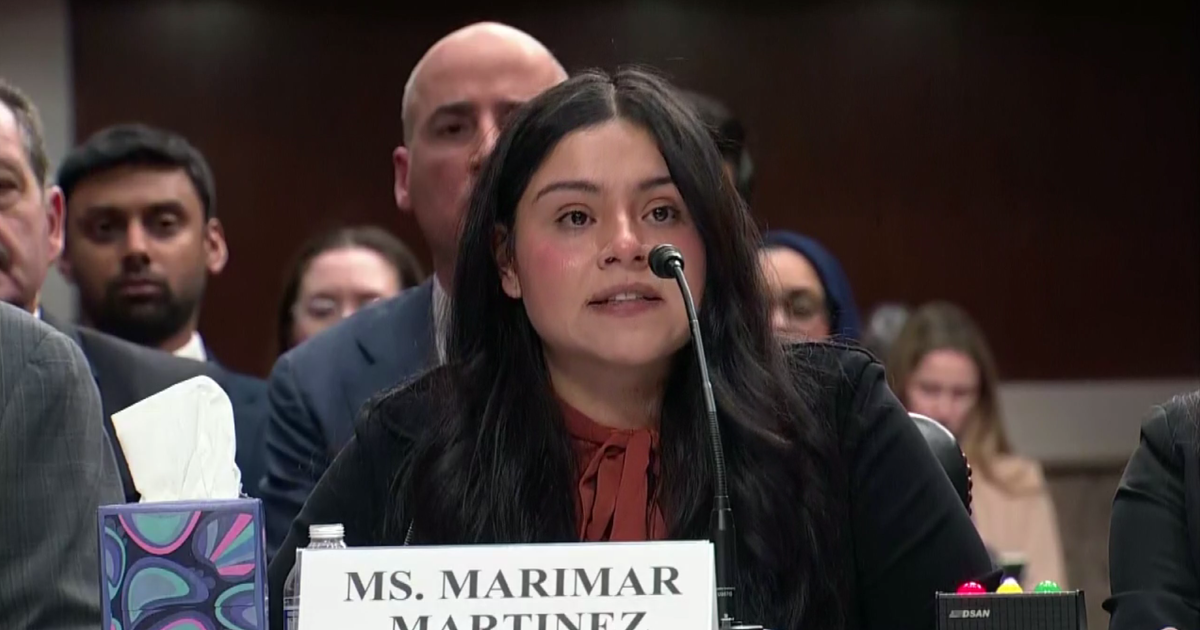Communication Woes Cited In Report On Maryland's Evictions Panel
BALTIMORE (WJZ) -- The Maryland Access to Counsel in Evictions Task Force has indicated in its first report to Gov. Larry Hogan that murky details and last-minute communication have kept task force members from providing adequate protection to tenants on the cusp of eviction amid a new wave of COVID-19 infections.
Task force members Pam Newland and Luke Lanciano said in a letter to Hogan that they were denied pertinent data and information that would help them better protect Marylanders on the verge of losing their homes due to financial hardships created by the deadly COVID-19 pandemic. The scathing letter detailing subpar communication among the 15 task force members was attached to the bottom of the report, which was made public on Jan. 5. It describes how task force members were prevented from adequately performing their duties during a meeting steered by Vicki Schultz, the chair of the task force, in November.
"On November 15, 2021, just 3.5 hours before the meeting, Task Force members were provided with a copy of the funding request that was sent to you," Newland and Lanciano said in their joint letter. "No prior information was provided to the Task Force regarding how the numbers in the funding request were developed. Candidly, we were stunned when the Chair moved for approval of the funding request. We received information on how the funding request was developed the day after the funding request was approved, and we did not receive answers to our subsequent questions until November 24, 2021, nine days after the letter was approved."
The funding would be spent on "access to legal representation in evections and other related proceedings" in Maryland, according to the report. The task force has estimated that it will cost $30 million per year to fully implement such a program. This figure includes funding for legal services, outreach, education, administration, and evaluation. To date, no money has been directed to the fund, known as the Access to Counsel in Evictions Special Fund.
The Maryland Access to Counsel in Evictions Task Force was created during the summer of 2020 to alleviate the public health crisis created by the pandemic. A wave of unemployment swept across the state in the first few months of the pandemic and led to an uptick in poverty and evictions. Its recommendations come just as Hogan has declared a state of emergency due to a spike in COVID-19 hospitalizations, which have increased by 500% within the past several weeks.
Historically, Maryland has an astronomical eviction filing rate when compared to other states and "stands out for its excessively high eviction filings each year," according to the report. The Eviction Lab at Princeton University has gathered analysis showing that Maryland's eviction filing rate is significantly higher than that of its peers. In 2016, that rate was 103.65%, which "is off the charts" when compared to Maryland's sister states, the report found.
"One reason for Maryland's high filing rate relative to other jurisdictions is that Maryland law gives tenants the right to redeem the leased premises three times after a judgment for possession has been entered so long as they pay all amounts ordered by the court 'before actual execution of the eviction order,'" the report states. "Thus, many of the failure-to-pay-rent filings do not result in an eviction because Maryland tenants 'pay and stay.'"
The task force recommended in its report that Maryland develop an outreach strategy that centralizes access to resources, establish a centralized repository for pre-filing notices related to eviction cases, and create a system that makes it easier for tenants to obtain legal assistance in eviction cases.
Task force members noticed that there was an inadequate number of competent staff and attorneys who were prepared to assist Marylanders with their home security struggles. They also noted that current court rules and procedures are inconsistent and do not always provide tenants with the opportunity to consistently exercise their right to access counsel. Their report recommends that state officials scrutinize the effectiveness "of outreach and referrals, the impact of legal services on evictions and disruptive displacements, and the appropriate levels of funding and staffing."
Additionally, task force members want officials to create a centralized eviction data hub that will collect, display, and analyze eviction-related data from key stakeholders. They should provide sufficient funding for the Access to Counsel in Evictions Special Fund too, the report notes.
"While eviction filings have not returned to pre-pandemic levels, we are hopeful that the availability of rental assistance, other changes to state and local laws, and the availability of legal counsel will reduce eviction filings so that they do not again approach the more than 650,000 per year mark that was seen in pre-pandemic levels," Schultz said in a letter to Hogan. "Moreover, as the Program is being phased-in over several years, the Task Force and MLSC are charged to assess funding and programmatic needs on an ongoing basis and make recommendations."







